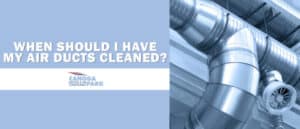
The Major Differences Between Commercial and Residential HVAC Systems
While residential and commercial HVAC systems have similar methods of heating and cooling, there are significant differences between the two types of systems. Therefore, when you need to get your HVAC system repaired, you’ll want to choose a technician who specializes in the type of service you need. Location Residential HVAC systems are located on the ground near the home. Commercial systems, on the other hand, generally reside on the roof of the commercial building. Commercial HVAC systems are usually quite larger than residential ones, and the rooftop provides ample space for each part of the unit. The rooftop location also allows technicians to work on these systems without disrupting those inside the building, and it keeps the system safe from interference and vandalism. Packaged vs. Splits Residential HVAC systems are generally in splits. The unit inside the home houses the blower, evaporator and condensate drainage, while the unit outside the home houses the compressor, condenser and condenser fan. Commercial systems, by comparison, are in one complete package inside of a single cabinet. Only the ducts and zone dampers are inside the building, while the rest of the system remains outside. Modular vs. Standalone Units installed in a residential space are standalone







